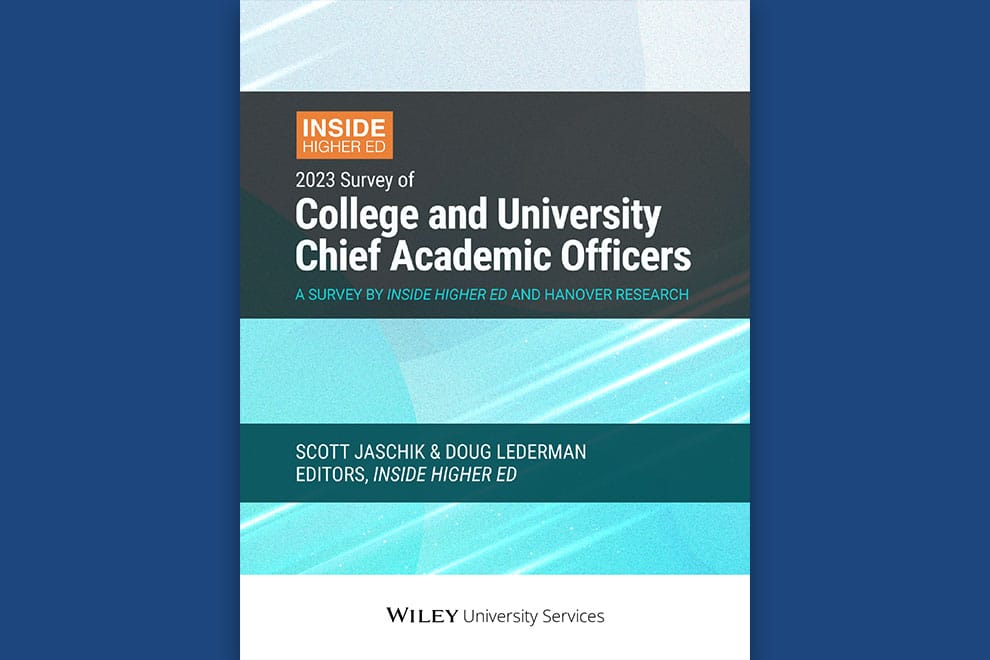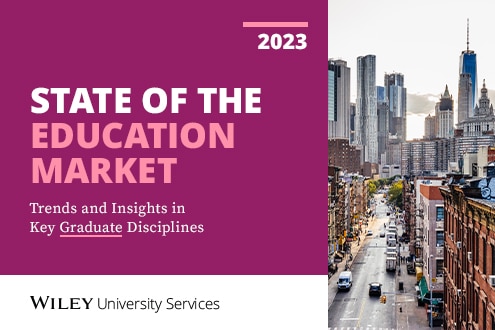Conferrals are increasing for doctorates in business administration (DBA), making this an intriguing advanced degree for universities to offer. Although 10 programs currently own half of the DBA market, for-profit schools administer most of them, and online options are rare. There is room for nonprofit institutions to launch programs that help aspiring business leaders further their expertise on a flexible schedule. But before we explore how to develop a distinct business doctorate, let’s look closer at the recent growth this market has experienced.
DBA Conferrals Are on the Rise
From 2010 to 2018, there was a 10 percent average annual increase in DBA graduates, according to IPEDS data. While modest, this growth shows rising interest in the credential, along with enrollment potential for universities that enter this emerging market.
Growth in DBA conferrals could be a positive sign for schools that offer a Master of Business Administration (MBA), where graduate trends have been flat in recent years. Despite a slowdown in graduates, IPEDS data shows that 107,448 people earned an MBA in 2018 alone, creating a large population of learners who may continue their education in a DBA program.
A Competitive Analysis of DBA Programs
An analysis of the 26 DBA programs in the Online Degree Database shows the average student earns 60 to 64 credits in 36 months. The majority of programs follow a hybrid format or have low residency requirements, which reduces students’ time on campus. New programs that provide similar flexibility—or take place entirely online—may attract learners whose busy schedules leave no time for trips to campus.
Many for-profit universities are performing well in this market, as the top-three for-profit programs accounted for 40 percent of DBA graduates in 2018. In the past, for-profit schools also dominated the MBA market, but many nonprofit universities attracted more students once they moved their business degrees online. Following this path in the DBA market could produce a similar result, said David Capranos, Director of Market Strategy and Research at Wiley University Services.
“Few nonprofit universities offer an online DBA, so this market is fairly wide open for schools to step in to fill that void,” Capranos said. “The online component is essential as this credential appeals most to leaders with many commitments. Offering a doctorate that blends into busy schedules will heighten your chances for success in this competitive space.”
Nearly half of the online DBA programs in this analysis offer degree concentrations, and the most common are marketing, accounting, and management. Offering a concentration in the latter is vital as business management is the most desired skill in this field, according to data from Burning Glass Technologies. Despite finance skills being in demand, few established online programs offer such a concentration, and that provides another way for schools to distinguish new programs.
Recruiting Students Seeking Personal Growth
The DBA appeals to aspiring professionals who want to advance their business knowledge as well as lifelong learners seeking to challenge themselves intellectually. As such, marketing and recruitment strategies should focus on attracting learners striving to elevate their statuses as leaders while bolstering their expertise. This approach differs from how universities should market a Ph.D. in business administration. With its academic focus, that credential is better suited for individuals who want to become a professor or pursue postdoctoral research.
Universities may want to consider the number of corporations in their region before pursuing a DBA program. As the majority of online learners apply to nearby schools, programs in industry epicenters with more business professionals stand a better chance of succeeding in this market. Capranos said these institutions would have a variety of options for attracting local leaders to an online DBA program.
“Yes, this credential fosters career advancement, but universities shouldn’t overlook senior professionals interested in sharing their expertise with a wider audience,” Capranos said. “Our research has shown students who pursue advanced degrees fall into three categories: They want to advance their career, launch a new one, or fulfill a personal goal. While earning a DBA helps boost a learner’s career potential, altruistic business leaders may want to help advance their field through speaking engagements or by writing a book. Getting a DBA could help bolster their stature so they can pursue these opportunities.”
The Bottom Line: Programs Need Distinct Features in This Competitive Market
Although the number of DBA graduates grew in recent years, this market is still emerging, as only 2,181 people earned a DBA in 2018. There is also intense competition among current programs, which means that new offerings will need distinct features to attract prospective students.
Providing an accelerated path to a DBA is one way to stand out in this market. Though the average DBA student spends 36 months in a program, some programs allow students to graduate in two years, which will appeal to motivated students.
Flexibility is also vital, stressing the value of fully online options. There were only 28 online DBA programs in 2018, and less than half were fully online. Enabling students to study entirely online is an attractive value proposition for busy learners. However, some students may desire a campus component, so it’s wise to provide that option, Capranos said.
“Some students in advanced programs see classroom interactions as an integral part of learning,” Capranos said. “Residencies for these students should be brief, lasting no longer than a few days per year. Ideally, universities will make residencies optional to accommodate DBA candidates who can’t fit a campus visit into their schedules.”
In this competitive space, higher education institutions should conduct extensive research before they introduce new programs. To see how to access clear insights about this and other education markets, explore our services and solutions.

















